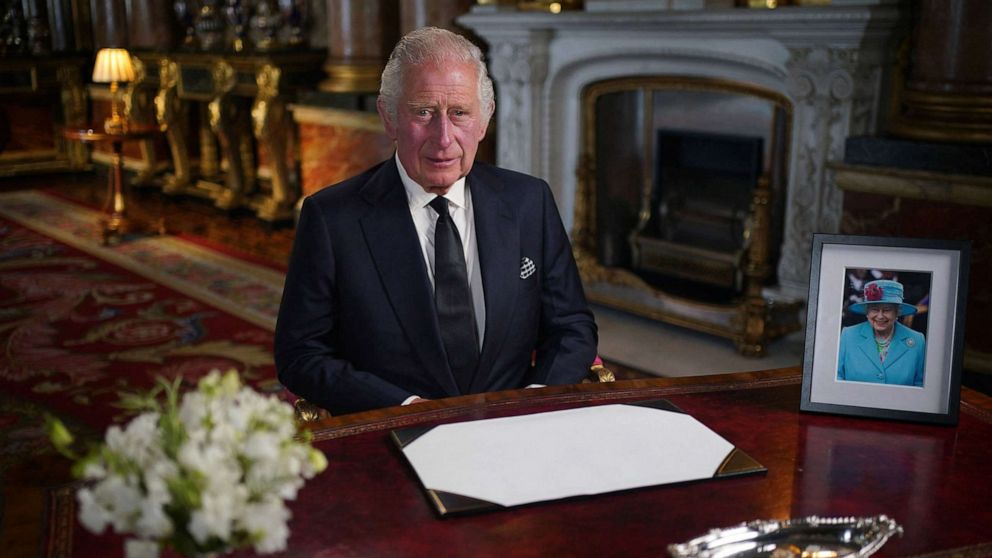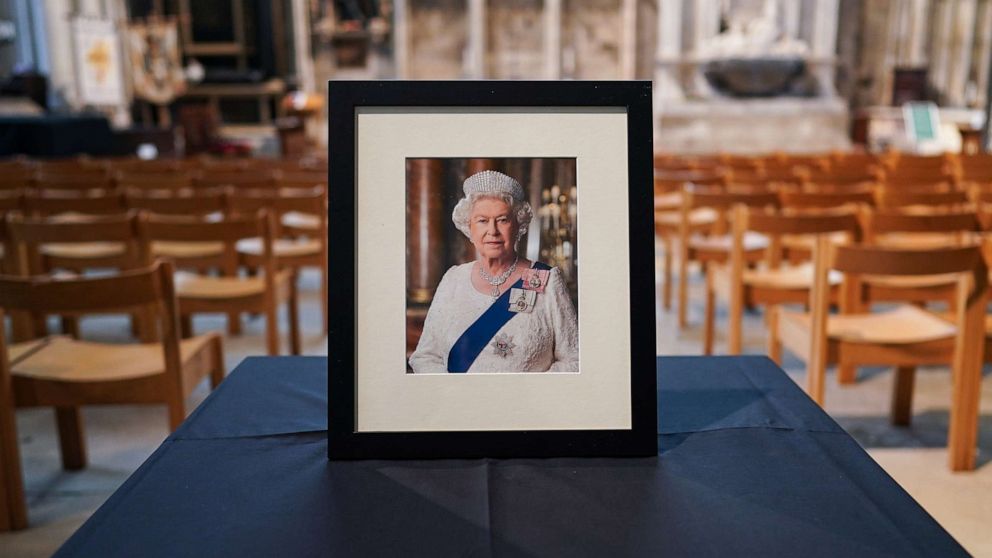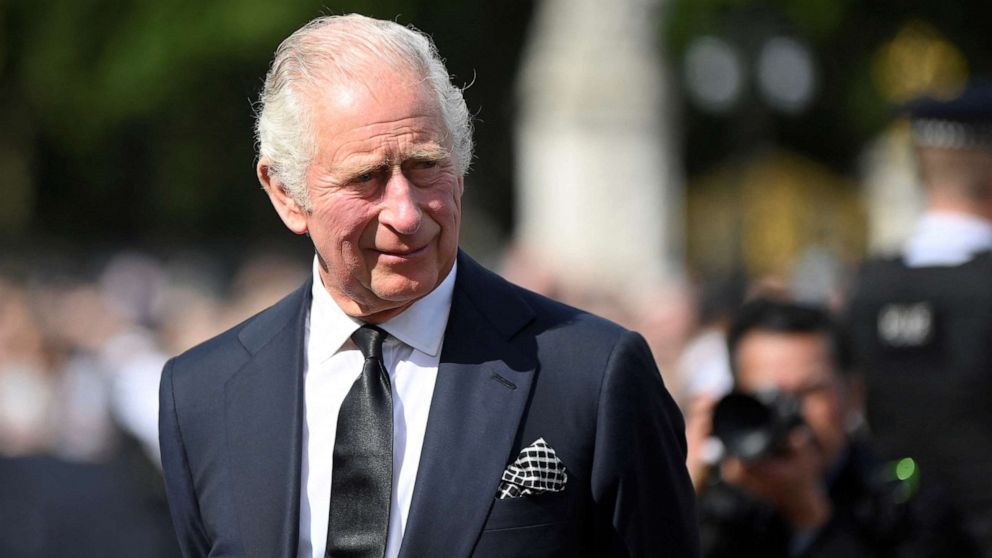Death of Queen Elizabeth II: Where is Charles now king and what is the Commonwealth?
Queen #Queen

Charles III has now ascended as king of England, but his constitutional rule extends far beyond the small, historic island.
King Charles is now also the head of the Commonwealth of Nations, a voluntary association of 56 independent and equal countries — the majority of which are former colonies of the British Empire. It is home to about 2.5 billion people and includes advanced economies and developing countries.
Fourteen of the Commonwealth nations are realms in which Charles is head of state. Those countries include the U.K., Antigua and Barbuda, Australia, The Bahamas, Belize, Canada, Grenada, Jamaica, New Zealand, Papua New Guinea, Saint Kitts and Nevis, Saint Lucia, Saint Vincent and the Grenadines, Solomon Islands, and Tuvalu.

Britain’s King Charles III makes a televised address to the Nation and the Commonwealth from the Blue Drawing Room at Buckingham Palace in London on Sept. 9, 2022, a day after Queen Elizabeth II died at the age of 96.
Yui Mok/POOL/AFP via Getty Images
Of the other 41 member states of the Commonwealth, 36 are republics, while the remaining five — Brunei Darussalam, Lesotho, Malaysia, Eswatini, formerly Swaziland, and Tonga — have their own monarchs.
Despite its ties to the British Empire, any country can join the modern Commonwealth, and other countries without any links from the colonial past have recently been admitted, such as Rhonda and Mozambique. The last two countries to join the Commonwealth were Gabon and Togo in 2022.
At its peak in 1922, a quarter of the world was ruled by Britain. Over the last century, these countries gained independence. Still, they retained close ties with Britain through an organization called the British Commonwealth, which was founded in 1949 with King George VI, Elizabeth II’s father, as the head.
Elizabeth then expanded the organization into today’s Commonwealth of Nations. It spans all continents except Antarctica and includes the former dominions such as Australia and Canada; long-established colonies in the Caribbean, such as Jamaica and St. Kitts; African countries like Nigeria and Zambia; and countries such as Singapore and India in Asia.

A portrait of Queen Elizabeth II is placed in York Minster on Sept. 9, 2022 in York, England.
Ian Forsyth/Getty Images
On Thursday, U.K. Prime Minister Liz Truss, who the queen had invited to form a government in her name just two days before her death, acknowledged the late sovereign’s efforts in growing and maintaining the Commonwealth throughout her reign.
From the time Queen Elizabeth II took the throne in 1952, she expanded the Commonwealth from a small group of seven countries to a “family of 56 nations spanning every continent of the world,” Truss said.
“We are now a modern, thriving, dynamic nation,” Truss said.
The main benefits of the Commonwealth are shared values, strong cultural and economic ties, similarities in legal systems, the widespread use of English, sports through the Commonwealth Games, sharing of information on matters scientific and medical matters and a host of mutually beneficial personal and institutional relationships, officials said. These values and principles are expressed in the Commonwealth Charter.
The Commonwealth Secretariat is based in London and is a central intergovernmental organization to manage the Commonwealth’s work.

Britain’s King Charles looks on outside Buckingham Palace, following the passing of Britain’s Queen Elizabeth, in London, Sept. 9, 2022.
Toby Melville/Reuters
The queen “loved the Commonwealth, and they loved her,” the right Hon. Patricia Scotland, secretary general of the Commonwealth, told the BBC on Saturday.
The succession as head of the Commonwealth from Elizabeth II to Charles III was not automatic or hereditary. In 2018, the Commonwealth voted to have Charles as its next head.
In March, Prince William and his wife, Catherine, now the Prince and Princess of Wales, conducted a tour of the Commonwealth’s Caribbean nations ahead of the queen’s Platinum Jubilee celebrations.
During the week-long visit to Belize, Jamaica and the Bahamas, the couple endured protests surrounding the history of the United Kingdom’s colonial rule and renewed discourse about the possibility of the transition to independent republics.
Barbados was the latest Commonwealth country to become a republic when it removed the queen as the head of state earlier this year and swore in a president. Barbados is still, however, a member of the Commonwealth.
William later said he did not expect to inherit the position as head of the Commonwealth.
“Who the Commonwealth chooses to lead its family in the future isn’t what is on my mind,” William wrote in a statement posted to the couple’s official Twitter account following the end of the tour. “What matters to us is the potential the Commonwealth family has to create a better future for the people who form it, and our commitment to serve and support as best we can.”